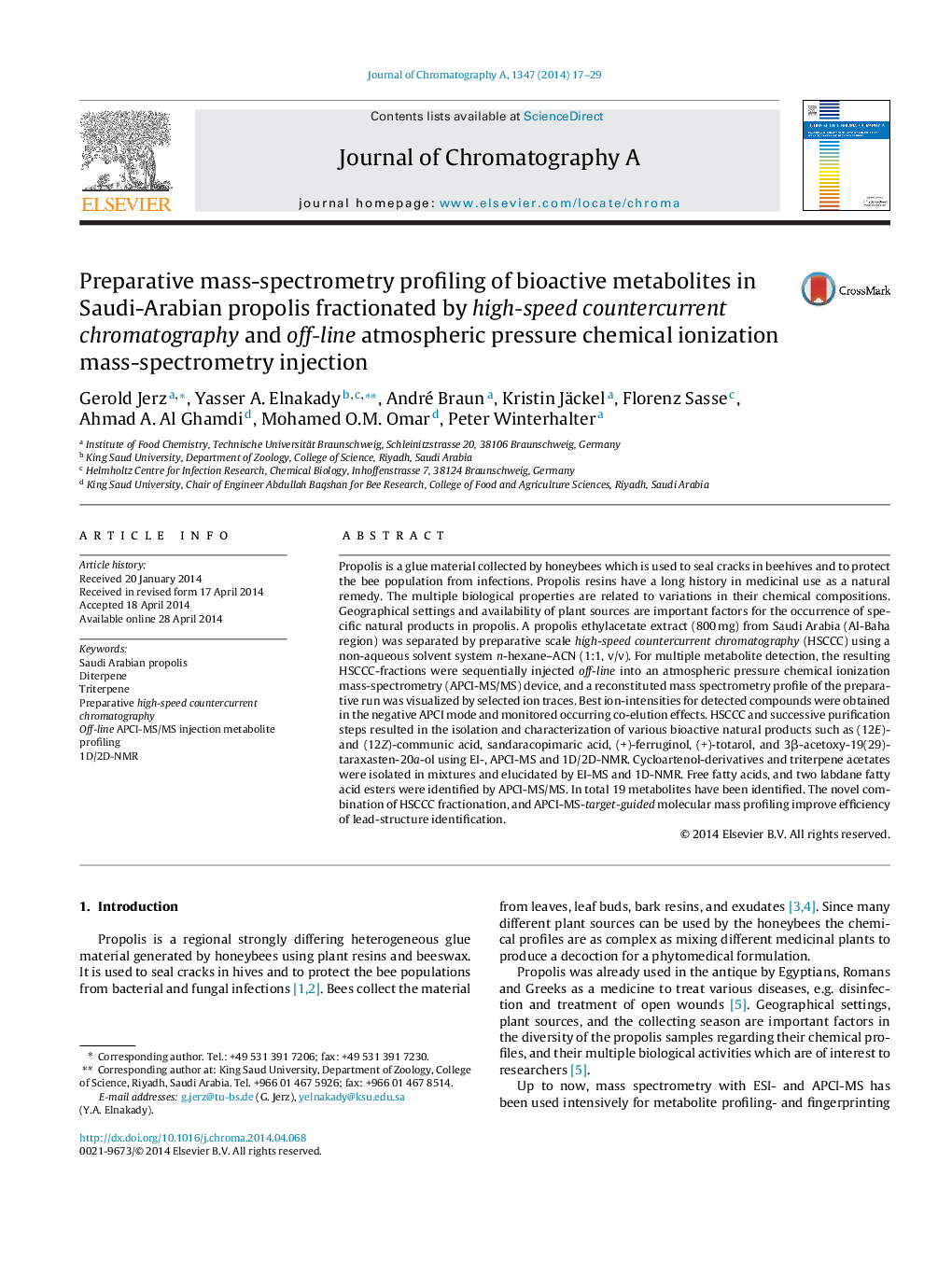| Article ID | Journal | Published Year | Pages | File Type |
|---|---|---|---|---|
| 1200325 | Journal of Chromatography A | 2014 | 13 Pages |
•First report on use of high-speed countercurrent chromatography for fractionation of bee propolis.•Mass-spectrometry profiling by atmospheric pressure chemical ionization (APCI-MS/MS).•Isolation and identification of 19 known bioactive compounds with plant origin.
Propolis is a glue material collected by honeybees which is used to seal cracks in beehives and to protect the bee population from infections. Propolis resins have a long history in medicinal use as a natural remedy. The multiple biological properties are related to variations in their chemical compositions. Geographical settings and availability of plant sources are important factors for the occurrence of specific natural products in propolis. A propolis ethylacetate extract (800 mg) from Saudi Arabia (Al-Baha region) was separated by preparative scale high-speed countercurrent chromatography (HSCCC) using a non-aqueous solvent system n-hexane–ACN (1:1, v/v). For multiple metabolite detection, the resulting HSCCC-fractions were sequentially injected off-line into an atmospheric pressure chemical ionization mass-spectrometry (APCI-MS/MS) device, and a reconstituted mass spectrometry profile of the preparative run was visualized by selected ion traces. Best ion-intensities for detected compounds were obtained in the negative APCI mode and monitored occurring co-elution effects. HSCCC and successive purification steps resulted in the isolation and characterization of various bioactive natural products such as (12E)- and (12Z)-communic acid, sandaracopimaric acid, (+)-ferruginol, (+)-totarol, and 3β-acetoxy-19(29)-taraxasten-20a-ol using EI-, APCI-MS and 1D/2D-NMR. Cycloartenol-derivatives and triterpene acetates were isolated in mixtures and elucidated by EI-MS and 1D-NMR. Free fatty acids, and two labdane fatty acid esters were identified by APCI-MS/MS. In total 19 metabolites have been identified. The novel combination of HSCCC fractionation, and APCI-MS-target-guided molecular mass profiling improve efficiency of lead-structure identification.
